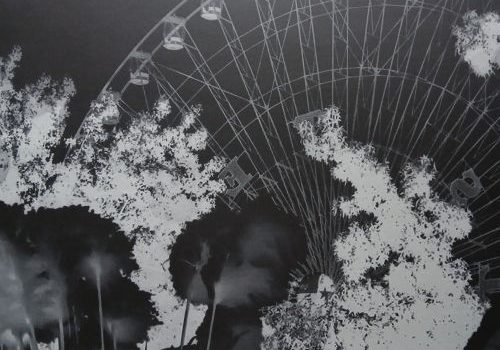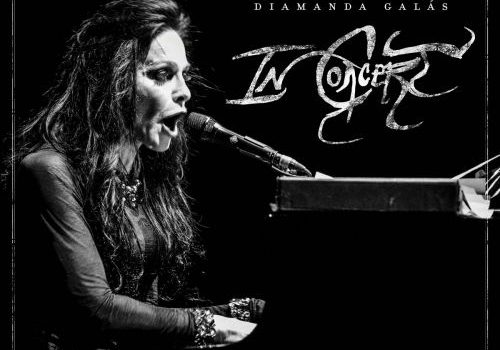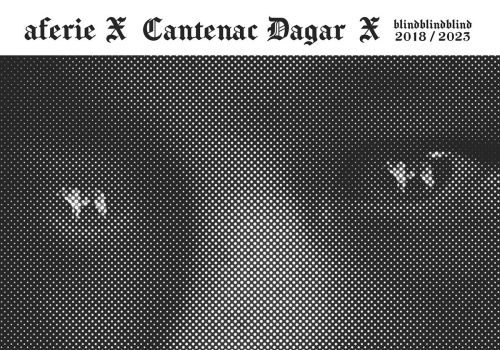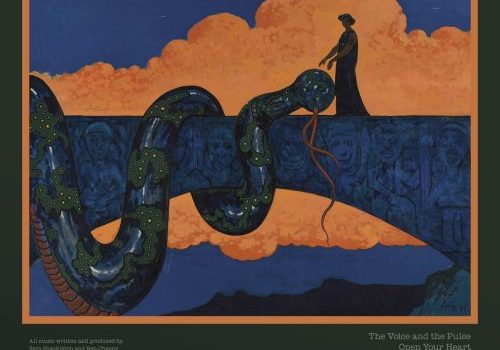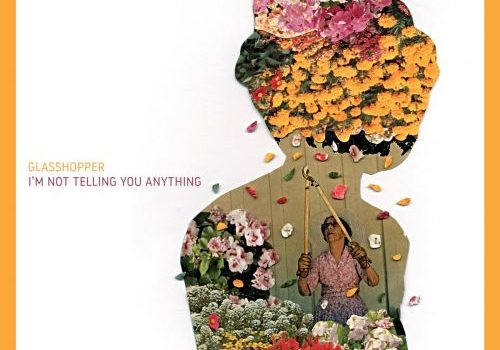Nordic travellers Stein Urheim and Mari Brunvoll have played together on and off for some years now, their delightful vocal duet a magical salve to the current malaise. Bringing on board tricky trio Moskus to add some unscripted textures to some recently recorded songs is a recipe for genre-dodging if ever there was one. The quintet knows absolutely no boundaries and over the course of this forty-five or so minutes, they play the field as if trying to break the Guinness World Record for most diverse album.
Album review
Skilfully smearing together layers of guitars, bass, synths, piano and drum machines, with guest input from returning long-term accomplice Dustin Dybvig, in a four-track recording set-up, Corridors is rudimental as well as otherworldly in its rendering.
...if you know Galás of the last twenty-five years or so, you probably know what to expect. All 'covers' (if that description still holds any water to what Galás actually does) with her on vocals and piano. In this case a live recording from Seattle, US in 2017.
...the LIVE energy this duo are giving off here is insanely satisfying, pushing a mirage of over-driven echoes into the red. A devotional daggered addictive that whirls around shrill and crowing, wounded in the rewind dry whirr of a tape player. The cicada rub of maracas accenting them strumming lacerations, those stippling busts of air-raid siren, all abruptly cut off shortly after the nineteen-minute mark.
Drag City The Gestalt psychologist Kurt Koffka, paraphrasing Aristotle (or maybe Aquinas), suggested that “the whole is something else than the sum of its parts” and here we are: two artists that I’ve followed and respected, both of them arch innovators with collaboration in their bones, joining their heads together in a new beast and it’s set me into a flutter in several ways.
Pearling a Pokemon itch, Xylitol opals an enviable optimistic. The maligned clubland default of drum'n'bass given a serious facelift as those needling hi-hatted hares of "Jelena" leap into some heavenly lifts and whispery ambient glows, something Kate Bunnyhausen expertly showcased at her recent Acid Horse outing.
I kept imagining that what I was hearing is what might happen if somebody kidnapped the B52s, got the band drunk and started slowly torturing them. It is not so much post-punk as post-apocalyptic, with rhythm crawling from flaming wreckage, a spiral of unsteady guitar body-slamming the bass and drums as the voices taunt and tease.
The first thing you notice is the sweet tone of the sax but the rhythm section, if you can call it that, of guitar and drums is irrepressible. The cheeky, supple lines picked out by the guitar support the sax well, but it is all subject to moments of doubt. Playful electronics fizz around the main instruments and all these differing facets take it in turns to propel.
The raw energy of Eva Luna was and still is an utterly satisfying listen, especially if life has dealt you a nasty surprise or two and you really need to vent. Each song kilter-kittens the frustration out of that snotty swizzle with plenty of unruly spanners and razor-tight acidics.
For Canadian-based quartet House of Gold's self-titled debut, the synth-wielding four have taken composer and drummer Isiah Ceccarelli's luminous sketches and cast them in golden, minimalist hues, mellifluous organ tones hopping and skipping around the dreamy ethereal vocals of Eugenie Jobin.
The basic premise behind this album is the use of Jo David Meyer Lysne's self-designed e-bows on guitar strings to produce naturally occurring random harmonics. As the e-bows have adjustable speeds, so the results are infinite due to other overtones created by the different resonances. There is an element of patience demanded of the player, but the end result is an absolute ever-evolving delight and when allied to Peder Simonsen's microtonal tuba, modular synth and pyrex bowls, the range of tones is pretty impressive.
I have this thing with free jazz where I tend to enjoy it live but have less time for it on record. By and large something gets lost in translation, or the live situation means there's nothing else to concentrate on and the sound is large and physical. This set though -- it's got everything you'd want.
...Covid restrictions kicked in and this album became a game of two halves, with ideas and basic tracks batted both ways across the ocean. To make it more interactive, both parties recorded over the same period of time and it was taken in turns who would lay down the initial ideas and who would then react to those. The album was intended as a commentary on the increasing role AI plays in entertainment and ironically, the enforced separation has played into humanity's hands.
Of that initial flush of '80s/'90s noise guitar bands, the Telescopes have done the most to leave their history far behind, ploughing an awkward distorted furrow that somehow turns up gems with every release, their bittersweet melodies hidden beneath ever deeper beneath layers of shimmering murk. I like Stephen Lawrie's attitude towards them; seeing himself more as a guardian of the name rather than it being about him. He channels ideas and uses whomever may turn up to realise those sounds.
...the production on this record is excellent. While this is traditional music, there’s plenty of subtle but useful studio frippery at hand — wee background synths to fill out a sound, a good sense of instrument spacing, pushing the bass to drive home rhythms and so on.
Having decided to record again, they chose to invite saxophonist Josephine Davies to add further texture and different impulses to their duo set up and that wise decision has thrown further light onto an already gleaming path. A surreptitious dream of sound, improvised and recorded live, the album highlights shared visions yet as seen from three perspectives, tied together in a natural whole.
Eric Chenaux has been ploughing his unique solo path for twenty years or more, but apart from the odd collaboration has generally gone it alone; guitar, pedals and that voice hovering above us, gazing serenely. Here on the latest album we are introduced for the first time to his trio, long-time friend Ryan Driver on Wurlitzer and vocalist and percussionist Philippe Melanson.
Discus is probably better known for the jazz / free business, so Mzyklypop is quite a contrast. Difficult to pin down directly — bits of old pop, bits of industrial, touches of electro-pop, torch songs and the like. Your mum would probably like bits of it and be squirming elsewhere. Depends on your mum, obvs.

